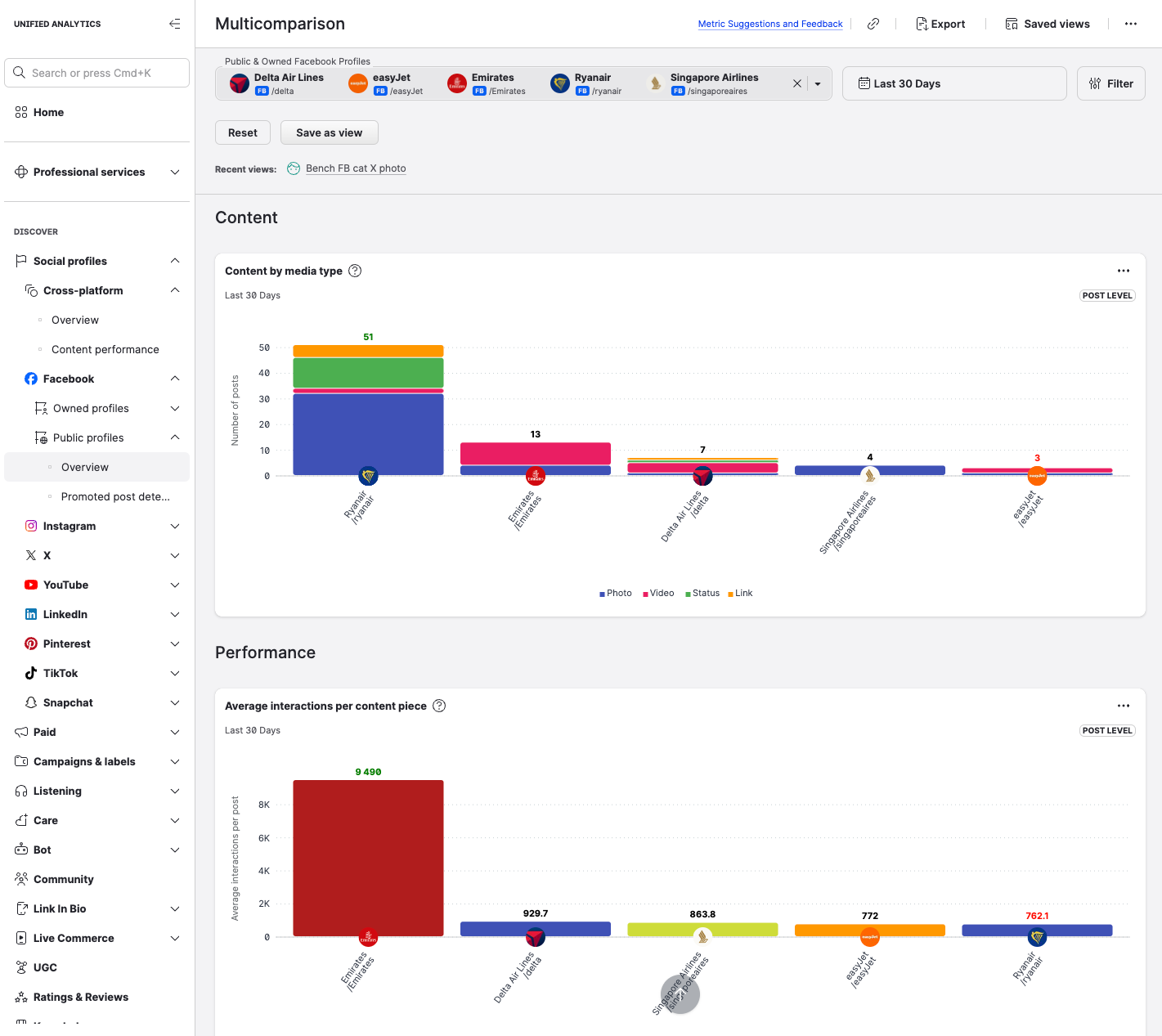Unified Analytics Transition Best Practices
As previously announced, we have discontinued the Legacy Analytics module which we first developed about a decade ago.
In this article, we outline the best practices to help you transition into the new experience called Unified Analytics, which is the result of our consolidation efforts to create a central analytical hub.

Transition or Migration?
It’s transition. And the process is about building our confidence quickly rather than learning everything from scratch.
You don’t need any tools or special training to start using Unified Analytics.
Your connected profiles, permissions, and connections configurations will work automatically. For example, users who have access to certain sources (profiles and labels) in Legacy Analytics can view them in Unified Analytics too.
The only thing that you will have to set up again in Unified Analytics is scheduled reports. Which is a great opportunity to refine your analytical setup and review the mailing list.
Can I do same things after transition?
Yes. And there’s more.
Not only you can use the same analytical tools, we added features that were never available in Legacy Analytics.
Create a Saved View so you don’t have to start your analytics routine from scratch every time you need new data.
Custom Boards in Unified Analytics allow you to hand-pick widget for to create a unique board.
Other features, such as comparing, are greatly expanded.
Best practices
We recommend that you review the available training material before you start the transition process:
this page
videos
documentation, especially the following pages:
Unified Analytics - this page contains important naming conventions
While the transition process will inevitably vary from one company to another, we bring you a couple of tips that you can incorporate in your own iterations.
No need to change your habits
Imagine that you start your Mondays by running the same analysis. You wanna see how your Facebook profile performed last week. You select your profile, adjust filters and dates….
In Unified Analytics, you can do the same. What’s more, you can simply Create a Saved View and avoid the manual setup phase.
Explore how to Drill Into Interactive Widgets and learn how to use Filters and Aggregation in Unified Analytics Boards.
Recreate scheduling
Replicate scheduling (sharing) arrangement from Legacy Analytics in the new environment.
Again, if you get the match, you succeeded in the quest.
To learn more:
Create and save your views
Identify one of your most use analytical use-case, recreate the setup and Create a Saved View so you don’t have to start your analytics routine from scratch every time you need new data.
Explore comparison options
Options and flexibility of comparison tooling are expanded and refined. For example, you can compare multiple profiles at once, create aggregated comparisons, and even compare your local and global Facebook pages.
Explore the following sections to learn more:
Q&A
Question: Do I have to build these reports out myself?
Answer: No, all of your profiles and data are automatically synced with Unified Analytics. All you have to do is choose what metrics you want to analyze from the different widgets and boards!
Question: Will phasing out of using legacy Analytics impact my use of Emplifi’s API?
Answer: No, phasing out of legacy Analytics and into Unified Analytics will not have any impact on Emplifi’s API. All API settings will remain the same.
Question: Can we filter for/select only organic KPIs in Unified Analytics?
Answer: Yes, you can easily filter for only organic KPIs by selecting Content labels that only include organic posts, or un-selecting any ads that you might be running.
Question: Will we still have access to dashboards?
Answer: Yes, you will be able to access Unified Analytics and your dashboards, so that you have all of your reports available.
Question: When will the Threads API be available in Unified Analytics?
Answer: We are currently in the process of gaining access to and developing the Threads API to be available in Unified Analytics. This availability is subject to change in our roadmap, but we will continue to update you on this.
Question: Will we be able to customize reports in Unified Analytics?
Answer: Yes - something we’re really excited about is the release of customizable boards in Unified Analytics. This is subject to change in our roadmap, but is slated to be released in the early part of 2025.
Question: What does the Facebook New Page Experience mean for our data and brand? We’re having trouble accessing insights.
Answer: If you have any questions regarding the Facebook New Page Experience, please reach out to your customer success manager or email support@emplifi.io. When it comes to accessing global insights, there is also an additional step involved; if it is not already set pu, connect with your central admin for social to get that set up.
